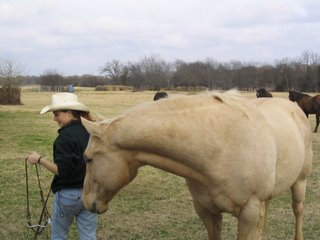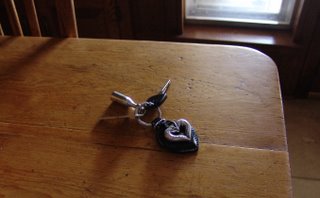11. Life and Death Lessons
 What an interesting turn of phrase Mario chooses, describing me as fearing his death, while I write in less straightforward terms: being obsessed with his health. Either way, both are correct. And it’s difficult to understand unless you’ve been there. Or at least, had someone close to you die.
What an interesting turn of phrase Mario chooses, describing me as fearing his death, while I write in less straightforward terms: being obsessed with his health. Either way, both are correct. And it’s difficult to understand unless you’ve been there. Or at least, had someone close to you die.I could play out either of those threads to their neurotic conclusion: become so obsessed with Mario’s death that I fail to fully live and appreciate him in the time we have. But I refuse.
So while I do concern myself with what he eats, and occasionally lapse into telling him what he “needs” to do, I try to keep my fear/obsession on a short leash and concede that Mario’s pretty good at watching out for himself.
The subtext to this is an uncomfortable truth for every relationship, for everything and everyone you love or will love: Sooner or later, one of you will say goodbye and one of you will be left alone.
 Many people have simply never contemplated this, especially young lovers, who can’t bear the thought of losing their beloved. (Ask a 9-11 widow or the mate of a fallen solider from the Iraq war whether it’s possible.) It doesn’t mean every relationship will end in death, but it’s true that every relationship will end. Each ending becomes a “little death” that must be mourned. (If you don't, you're just building a time bomb.)
Many people have simply never contemplated this, especially young lovers, who can’t bear the thought of losing their beloved. (Ask a 9-11 widow or the mate of a fallen solider from the Iraq war whether it’s possible.) It doesn’t mean every relationship will end in death, but it’s true that every relationship will end. Each ending becomes a “little death” that must be mourned. (If you don't, you're just building a time bomb.)So it helps to focus on what’s important and let go of what’s not. I think of my dad, who’s 91 and still chugging right along, like the model T’s he restores. Not too long after my mother died, he remarried, to a woman he has known since the second grade. She also had lost her mate after 50 years of marriage. They've been together 10 years and grab a hold of every minute they can.
They know: Life is too short to spend on petty squabbles.
 In five years, Mario and I have had maybe two serious arguments. It doesn’t mean we don’t have differences. It just means we don’t get too torqued about little stuff. It also doesn’t that mean people don’t have serious differences, serious enough to cause a split. Just that you develop the wisdom to recognize which is which.
In five years, Mario and I have had maybe two serious arguments. It doesn’t mean we don’t have differences. It just means we don’t get too torqued about little stuff. It also doesn’t that mean people don’t have serious differences, serious enough to cause a split. Just that you develop the wisdom to recognize which is which.My favorite example of this involves barking spiders. These little creatures have been known to skitter around so wildly some nights that the bedcovers luff like sails in a wind. Now I’ve known men who would be (a) genuinely offended or (b) horribly embarrassed in the same situation. But barking spiders are not a big deal once you’ve struggled alongside someone, like Izzy, who at times could not even eliminate, much less pass gas.
You learn to get over it and focus on what’s important.
My daughter, who has just bid her teen years farewell, gets the appreciation thing. You’ll remember I wrote about her and her boyfriend moving to another city to a house big enough for two cats and a bunny. Well, just a few days ago the bunny died at my house the morning they were leaving.
All of us cried. For all her pooping and peeing inappropriately (and appropriately, too), this little creature had a way that just melted your heart. ‘Seems that one of my cats, the scaredy one, scratched her, which led quickly to an infection. Chaco was gone before we could get her to the vet. Kinda like a guy who has a heart attack when you least expect it.
“It’s so weird, Mom,” Helena said through her snuffling. “I can handle death.” We talked a bit about that. “It gives you an appreciation of the now,” she said. “It teaches you about not taking life for granted, and how it’s spent.”
She says this was not necessarily learned through Gregory. And I can’t dispute her. One of her high school friend’s dad committed suicide. Another friend died of cancer. Helena doesn’t shrink from these events and has often been able to offer meaningful support. But I wonder: She and Gregory were so close, and the way she learned of his death was almost as upsetting as his death itself.




 So it is refreshing that Mario is almost girlish in his attentiveness to his body, making sure to get regular physicals and going to the doctor if anything seems amiss.
So it is refreshing that Mario is almost girlish in his attentiveness to his body, making sure to get regular physicals and going to the doctor if anything seems amiss. Despite Mario’s obvious attention to his own wellness, I still want to give him “advice” about his health. Sometimes he welcomes this, as when I helped devise a plan where he lost about 10 pounds. (Of course, he’s lost 10 pounds in Italy before, just by walking.) More often, when I mindlessly say something like, “No. You’ve had enough of that,” he comes back with some defensive retort, such as: “You are not the boss of me!”
Despite Mario’s obvious attention to his own wellness, I still want to give him “advice” about his health. Sometimes he welcomes this, as when I helped devise a plan where he lost about 10 pounds. (Of course, he’s lost 10 pounds in Italy before, just by walking.) More often, when I mindlessly say something like, “No. You’ve had enough of that,” he comes back with some defensive retort, such as: “You are not the boss of me!” She may not know it, but when she sets her table with his dishes and cooks for the boyfriend and others with his pots and pans, she will be setting the table for her own party of two, or four. Only, being so young and full of the potential of life, she will not have to make places for those who have left. At least, not yet.
She may not know it, but when she sets her table with his dishes and cooks for the boyfriend and others with his pots and pans, she will be setting the table for her own party of two, or four. Only, being so young and full of the potential of life, she will not have to make places for those who have left. At least, not yet.

 Sometime later in the afternoon, he had stopped in at my condominium to feed the cats. He still had on his yard clothes – he hadn’t yet shaved and dressed for the party he was expecting to attend that evening for a client who was a photographer. He locked my unit and walked toward his own in the same complex. He crossed the courtyard and began to half-walk, half-run up the stairs to his own unit.
Sometime later in the afternoon, he had stopped in at my condominium to feed the cats. He still had on his yard clothes – he hadn’t yet shaved and dressed for the party he was expecting to attend that evening for a client who was a photographer. He locked my unit and walked toward his own in the same complex. He crossed the courtyard and began to half-walk, half-run up the stairs to his own unit.


